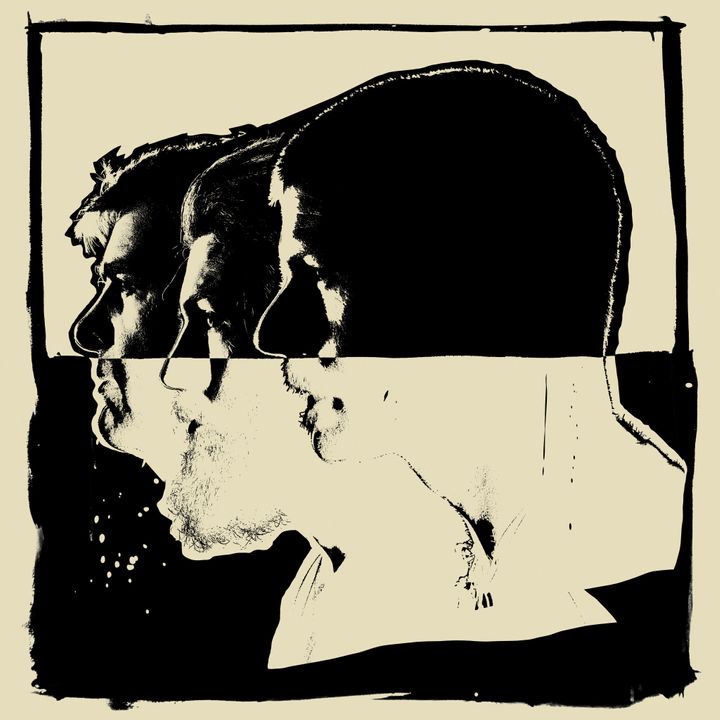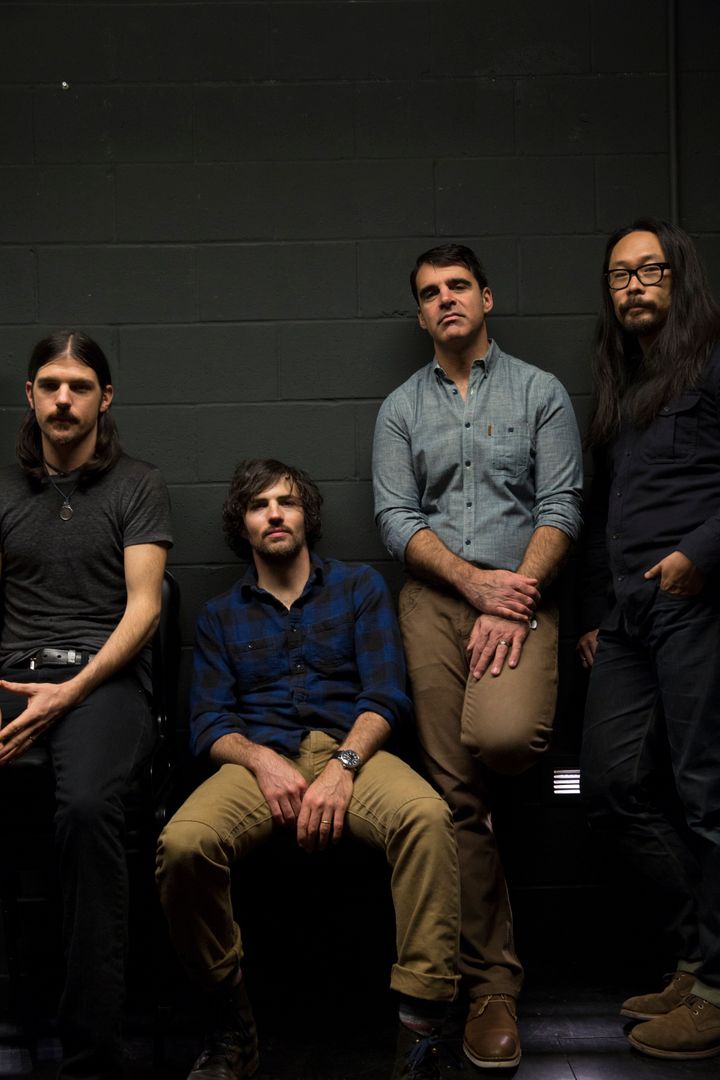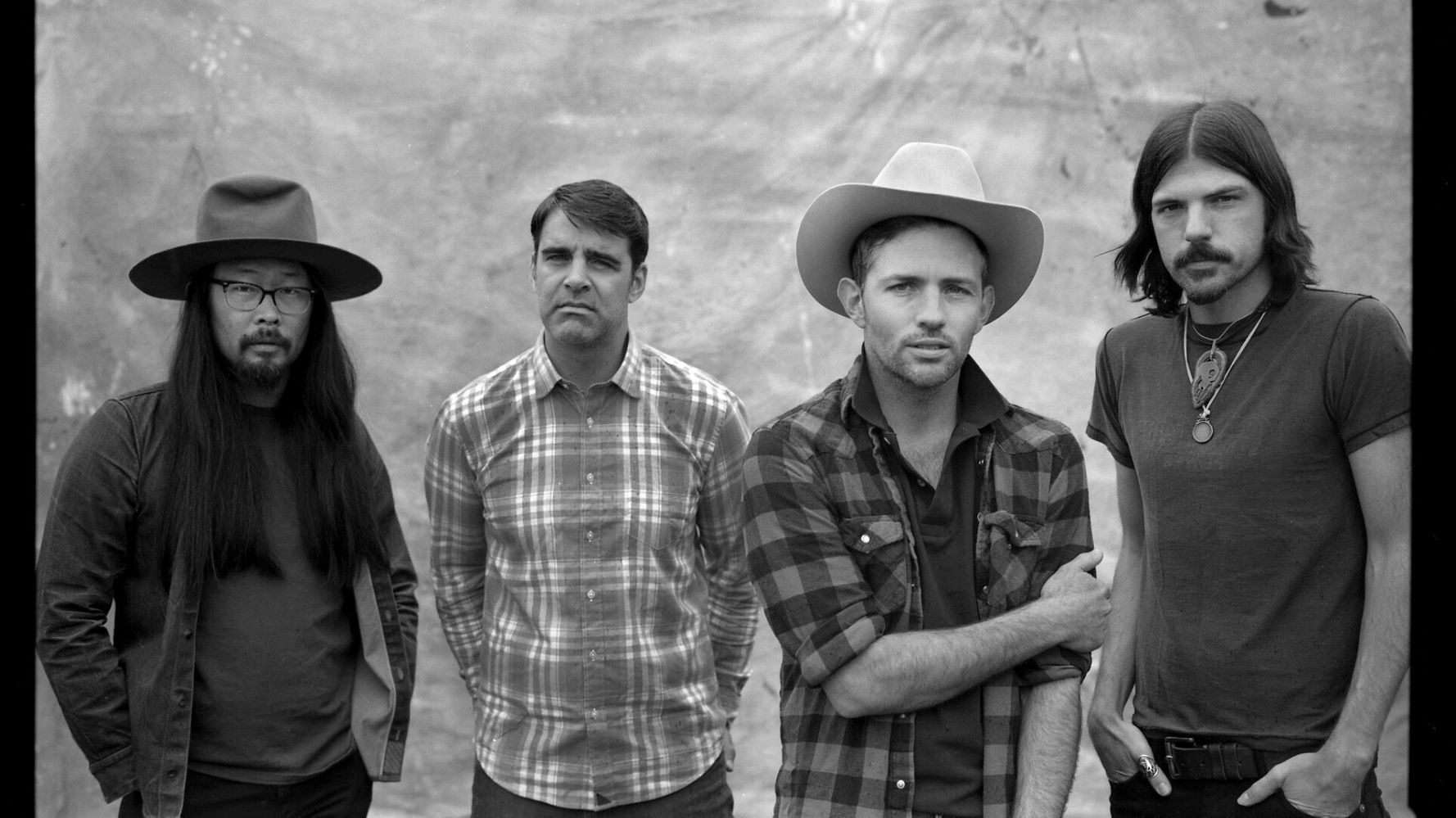[ad_1]
Politics isn’t necessarily what immediately comes to mind when you think of The Avett Brothers. But the band couldn’t help but be influenced by the world around them while writing songs for their upcoming album, “Closer Than Together,” due out Oct. 4.
“We didn’t make a record that was meant to comment on the sociopolitical landscape that we live in,” the band said in a mission statement announcing the new music earlier this summer. “We did, however, make an album that is obviously informed by what is happening now on a grander scale all around us.”
The new set follows the Avetts’ 2016 album, “True Sadness,” the making of which was chronicled in the Judd Apatow-helmed HBO documentary, “May It Last: A Portrait of the Avett Brothers.”
“We’ve lived with these songs,” Scott Avett told HuffPost about the new music. “We have a length of time that we want to live with songs before we know that it’s time to release them into the public, into the world.”
And for Avett, things feel just right.
“I’ve never felt more in place as far as, just sure of who I am at this moment. Certain that it will change. But sure of where I am in this moment,” he said. “It makes it easier to release the music, being confident in what the music is and what you made, as well as being confident enough to laugh at it. None of it’s the end of the world.”
Below, we discussed the Avett Brothers’ new music, the sociopolitical climate and more:
You said you’re feeling really confident right now. Do you think that’s attributed to experience, age, or is there something else driving that?
Well, I certainly think it’s age. It’s just maybe how I view things and my trajectory; it’s been somewhat of a slow growth for me. I’ve been in a threshold from young man to adulthood for years. To me, in our whole culture, that seems to be a lot wider threshold than it should be … I feel like in the past five years or so, it’s been a moving through that threshold into an acceptance of myself. I think it’s typical at 40 [years old]. I think it’s good, and I think it’s healthy. But also, I think that our experience has been convincing enough to ourselves … I think, just by default, we craft in a more proficient or efficient way. We just make what we make faster and with less hang-up.
In your new album’s mission statement, you mentioned The Avett Brothers will probably never make a sociopolitical record, but if you did, this would be the closest you’d get. Can you elaborate on that?
I think the most important note to make is that everything we put out is a personal relationship, is our specific personal relationship with our loved ones, with our friends, with strangers, with the public, with culture, and with, ultimately, the oneness of earth, of our universe, and of all things. This is a personal relationship with those things. During and after “True Sadness,” and to this day, we get occasionally asked to do something that might be more directly … you would call it sociopolitical. There’s nothing else about it — it’s political and that’s it, or it’s social and that’s it. We could never claim to be very good at that. We have no business pretending to be an authority, or we have no business in really telling other people what’s right for them. You think you know what a person’s going through and that’s part of the issues, part of the problems.
But we do know what our personal relationship is, and we can speak on our personal relationship. If we can speak on it in a way that is unifying versus dividing and based in, not necessarily fact, but just based in our relationship with life and with oneness … There was a tendency to want to, like, “Ah, we should write a statement for something or this or that, outside of a mission statement for our own art.” And we stopped short and went, “Wait, we should write a song. That’s how we communicate. That’s what we do, we make art. That is our contribution.”
Well, I see you taking on those personal issues with songs like “New Women’s World.” Where did that come from?
That song is kind of like a future, like you’re gazing to the future and it’s an apocalyptic approach. It’s like it’s another year and the world has been destroyed, and now it’s like, “Well, OK. Here’s another take on it. Instead of it’s a man’s world, it’s now a woman’s world.” Might as well let them have a go at it, right?
Speaking of relationships and our personal relationships, when I reflect on my marriage, I would want it to reflect my relationship with God or with the Earth. At times, I have to want to honor it completely and be good to it and lift it up. Follow it when it’s time to follow it. Lead it when it’s time to lead it. It’s always changing. In all aspects, it’s based in love, honor and respect. Period. That’s how we become one — ultimately, all these conversations, which are very worldly indeed. With a song like that, to us, they’re hugely spiritual and universal conversations.
Oh, yeah. I think that’s a lot of the album. Like the song “We Americans” ― that’s talking about our culture and history, too.
Yep. The song’s an essay, really. I think when you listen to it, somebody on one of the “sides” or “opposite sides” you probably want to hear things that say, “Oh, it’s my song.” But the reality is, is there’s nothing to argue about on the song. It’s really just a historical essay.
I love that you guys came out with “High Steppin’” as the lead single. It screams single because it’s so catchy. Could you give me a little background on that track and how it evolved?
I think part of the confidence that we might be working with in our age is that you gotta kind of have some sort of trust. But for us, we had to have trust in ourselves to be able to lay down a spoken word like that. There’s actually two songs on the record that have spoken word pieces in them. That song, ultimately, is about the risk of life. Just the risks of living and looking back, I guess, but also realizing that you’re in it. Like how risky each thing that you do is, even just waking up. It’s mind-boggling how risky it all is, and that was just a more of a playful approach of the idea of having death and the cowboy just riding along together, unified acceptance of the darkness, of the ending of things. But also just cruising with that and realizing it’s there and taking the gamble and really looking back and realizing, “My gosh, how many gambles have we made? How many will we make, God willing?”
The album title “Closer Than Together,” I like it. How did you guys land on that, and what does it signify to you?
It was really fast. Well, I was playing with what the album cover would look like for many, many hours. As I worked with it, I kept thinking about — I was trying very much to blend everything, and I ended eventually with blending Seth [Avett] and Bob [Crawford] and I as the image. But I kept thinking that the whole point is unification and oneness, and that something had to do with dividing, then we’re doing — then there’s a red flag. I kept thinking about oneness and I was like, kept thinking about, “Well, how do I put us together here?” And I’m like, “Well, what is closer than together? That’s one, and we are all that.” If somebody says, “Let’s get together on this,” I would almost go further and say, “Wait a second, you already are. We’re all the same body.”

We’ve seen so much in the last few years: mass shootings, the Me Too movement, the growing political divide …
It’s very frustrating and it’s hard to compute all the problems and it’s just snowballed in so many ways. If we stop looking up and looking toward betterment and hope and love, then it’s just overtaken by those terrible things and somehow we got to figure it out. I’m not great at it. It’s all aspiration. In no way would we say we’re great at it. We struggle. But just at the core of it, that’s gotta be … and what do we tell our kids? Like, “Oh, hey, we’re raising you but ah, well, screw it. It’s going to suck for you.” We just can’t do that. There’s no way.
You have how many kids now?
I have three. I have two boys and a girl.
Are they at all musical?
I think they are musical. It seems like all kids are musical and all kids are artists, and it’s beautiful the way that they don’t criticize. I mean, my oldest has started to be critical of some of the things she does, but that’s normal. That’s how we do. That’s what we start doing around 8 or 10. We just dive in and let that journey of our accomplishment begin. It’s incredible to see it. My wife and I are just trying to identify what their natural triggers are. They could be musicians, they could be carpenters, they could be lawyers, doctors, whatever it is ― we just try to honor that.

You’re currently out on the road. Is there a song that, no matter what, is your favorite to perform?
It certainly changes. Right now, I’m really enjoying playing “High Steppin.’” It has been really fun to play. It’s very linear, and although it doesn’t have rapping in it, it’s so lyrical and linear that it feels almost country / hip-hop, which is fun, which is nice. So that’s a lot of fun. I really like playing “Who Will I Hold” from the record right now. It’s live, it’s very fragile. And also, I think I’m actually singing in my real range, which is much lower, and it feels very nice to play. I love seeing a crowd of thousands go quiet versus … it’s awesome to hear them erupt, that’s awesome to hear a crowd pop. But when you can get a 5,000- to 10,000-seater quiet, it’s just incredible. But it changes nightly. We’re road-weary right now. It’s hard to know what to really trust how we feel. But physically, we’re great and just doing the work, swinging the hammer.
What’s going on with the musical called “Swept Away” that’s inspired by your music?
Oh, man. Lord, it is so cool. Oh, my gosh. I’m telling you, the cast of folks that are working on it, the writer John Logan, the whole group. They’re all just … I don’t know if they have A-listers in Broadway, but they’re all A-listers. It’s just incredible, the crowd that has come around that and lifting that up. Regardless of what it does, I already know it’s amazing. But we just visited a theater in Berkeley where it will premiere, so it’s very exciting. I can’t wait for people to see it.
You’re about to have your first solo exhibition of your own artwork. What’s it about art that you love, that you channel that’s different than making music?
It’s much, much lonelier. It’s much more solitary. That I love. I get less and less alone time, and I think that’s just normal with families and growing up. But it’s sacred time, and it’s definitely been an awakened moment for my soul and I’ve been doing it forever, ever since we’ve been on the scene. It’s great to get some of the work out of my studio and let that expression be seen. It’s just me. It’s just a massive, massive part of who I am.
This interview has been edited and condensed for clarity.
REAL LIFE. REAL NEWS. REAL VOICES.
Help us tell more of the stories that matter from voices that too often remain unheard.
[ad_2]
Source link

